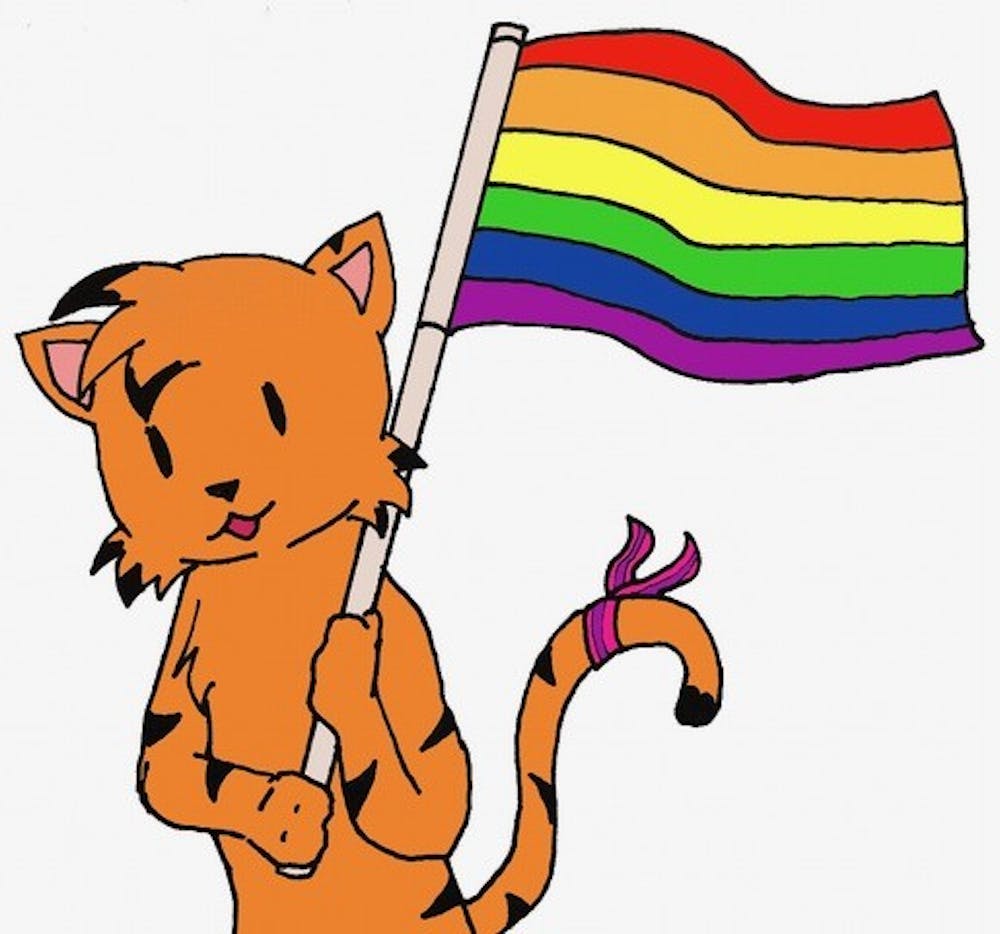Then you should check your bias. When my straight guy friends say, “I don’t want to see 'Call Me by Your Name.' I’m all for gay rights, but seeing two guys together makes me uncomfortable,” they are revealing a societal bias that’s pervasive and problematic.
At first, I defended them. I thought: Something you support in a theoretical sense can make uncomfortable in practice. I figured this did not make them homophobic people. But it is possible to have homophobic biases that impact decision-making. And avoiding films involving gayness is a homophobic choice.
This subtle yet salient prejudice is a result of being raised in a heteronormative culture. We grow up receiving signals from Disney movies and pop music that boys like girls and girls like boys, and that’s expected almost from the moment we are born. It’s not optional in our culture to consume media and the subtle messages and values it conveys — it’s ubiquitous. But remaining complacent and accepting these prejudices is a choice. It’s a choice many make. It’s also a choice that will be accepted as long as homosexuality is continued to be othered in society.
I won’t lie, I have described "Call Me by Your Name" as a really good “gay” movie and compared it to "Brokeback Mountain" and "Carol." Those films felt the most comparable to me, even though in actuality, "Call Me by Your Name" is more similar to "A Walk to Remember" or "(500) Days of Summer." This distinction — this line I draw in my mind — hints at the fact that gayness isn’t fully normalized yet. People don’t have to confront gayness if they don’t choose to. For some, it’s more comfortable to turn on the TV right now and flip to any channel, knowing that there’s a 99 percent chance that nothing on will feature a gay character, never mind a gay couple.
But many people have made the choice to branch out and interact with media featuring gay characters, and as a result cultural attitudes surrounding homosexuality have dramatically shifted within the last 15 years. During a 2012 interview, Vice President Joe Biden said, “I think 'Will & Grace' did more to educate the American public more than almost anything anybody has done so far.” TV shows like "Glee" and "Shameless" picked up where "Will & Grace" left off, placing homosexual characters and couples at the center of plotlines and depicting scenes of homosexual intimacy. If media is powerful enough to prescribe bigotry, it’s powerful enough to undo it. Actually, it’s really trying hard to. I strongly encourage you to give it the chance — let it “un-doctrinate” you.
As University students, we have so many resources and opportunities to expose ourselves to various viewpoints and experiences. Undergraduate Student Government aptly chose "Call Me by Your Name" for this week’s Free Movie of the Week at the Garden Theatre. Whether you capitalize on this (free!) event, or choose to go to Cafe Vivian’s upcoming Coffee House and Open Mic night, expose yourself to at least one new venue or scene this week. Increasing engagement in the communities on campus that are most different than you could be some of the most valuable moments of your time in college.
Sometimes questioning the areas of campus you already familiar with is just as hard as exploring new territory. I go out to the Street every weekend, and have never really considered that experience from the LGBTQ+ perspective. Do gay students feel comfortable expressing affection the way straight students do? How do people react on the Street when same-sex students participate in dance floor makeouts around 2 a.m.?
Romance movies may not be your cup of tea. They don’t have to be. But if one particular kind of love makes you “uncomfortable,” it’s important to take the time to think about why. Acknowledging bias can be scary, but is an important step towards equality. Even better than acknowledgement is confrontation. If you know seeing same-sex people kiss makes you uncomfortable, then seeing "Call Me by Your Name" should rank even higher on your priorities list. Watch it like any other movie; let it change your bias.


Rachel Kennedy is a first-year from Dedham, Mass. She can be reached at rk19@princeton.edu.








